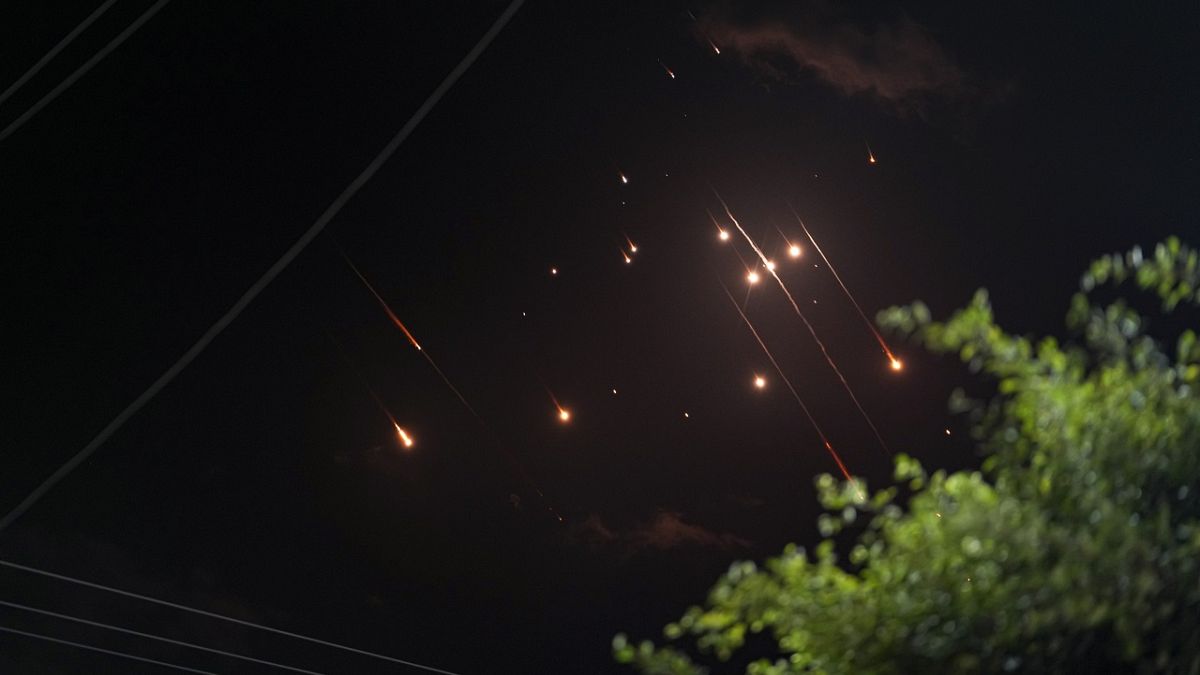Israel’s military launched strikes on Hezbollah targets in Beirut on Wednesday, claiming that its operational capabilities were unaffected by Iran’s missile strikes. The explosions in Beirut were visible along the city’s skyline, and residents in the southern suburbs were warned to evacuate. In response to Iran’s attack where 180 missiles were launched into Israel, Israeli Prime Minister Benjamin Netanyahu vowed retaliation and called it a “big mistake.” Despite the attacks, the IDF announced that the Israeli Air Force’s operational capabilities were intact and that more strikes would be carried out in the Middle East.
In the aftermath of Iran’s missile attack, government supporters in Tehran celebrated the strike, waving Iranian, Lebanese, and Hezbollah flags. People in Gaza and the West Bank were also seen celebrating the attack. Before Iran’s attack, Israel had targeted Hezbollah leadership in Lebanon, resulting in a limited ground incursion in southern Lebanon. The Israeli strikes in Lebanon have caused over 1,000 casualties, with a significant number being women and children, as per the Health Ministry. Hundreds of thousands of people have been displaced from their homes due to the escalating violence in the region.
The IDF spokesperson, Daniel Hagari, stated that the Air Force would continue to operate fully and carry out powerful strikes in the Middle East. He emphasized that Israel will continue to pursue Hezbollah commanders and anyone who threatens Israeli citizens. Hagari condemned Iran’s actions, stating that it had escalated tensions in the region and that Israel would respond at their own discretion. The missile attacks signify a dangerous escalation in the already volatile situation in the Middle East, with fears of further conflict and casualties lingering.
The ongoing conflict between Israel and Hezbollah has raised concerns about the stability of the region, with both sides engaging in retaliatory attacks. The recent wave of violence has resulted in numerous civilian casualties and mass displacement, further exacerbating the already dire humanitarian situation in Lebanon. The international community has called for an immediate ceasefire and a return to negotiations to resolve the conflict peacefully. However, the entrenched positions of both Israel and Hezbollah make a swift resolution challenging, with the risk of further escalation looming large.
As the situation in the Middle East continues to deteriorate, there is a pressing need for diplomatic efforts to de-escalate tensions and prevent further violence. The targeting of civilian areas and infrastructure in Beirut and other parts of Lebanon is a cause for grave concern, with innocent lives being caught in the crossfire of the conflict. Both Israel and Iran must exercise restraint and seek peaceful avenues to address their grievances, rather than resorting to military aggression. The international community must play a more active role in facilitating dialogue and promoting a peaceful resolution to the ongoing conflict, before the situation spirals out of control.


























